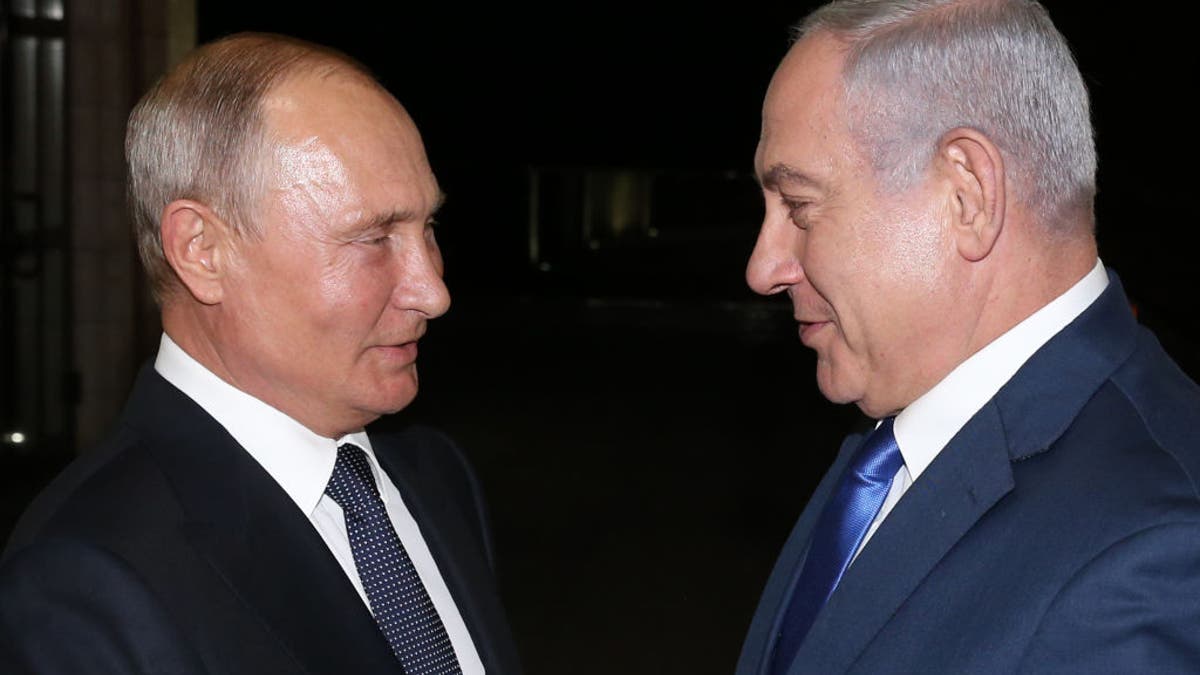As the Assad regime falls and Russia’s influence in Syria weakens, some observers believe that there is now an opportunity for a closer relationship between Israel and Ukraine.
Yuli Edelstein, who chairs Israel’s Foreign Affairs and Defense Committee and is a member of the Likud party, emphasized the need for Israel to show more support for Ukraine. According to Edelstein, the current situation calls for Israel to take on a more active role.
Edelstein, a prominent figure in Israel’s defense and foreign policy circles, highlighted the concept of “the enemy of my enemy is my friend.” He pointed out the developing strategic partnership between Russia and Iran, noting the shifting power dynamics in the region.
“We’ve seen the importance of Iranian weapons, with an emphasis on missiles and drones, for the Russians,” Edelstein continued, “Therefore, Israel could have taken a much clearer stance, supporting Ukraine.”

Russian President Vladimir Putin greets Israeli Prime Minister Benjamin Netanyahu during their meeting on Sept. 12, 2019, in Sochi, Russia. (Mikhail Svetlov/Getty Images)
Rebekah Koffler, strategic military intelligence analyst and author of “Putin’s Playbook,” said Israel’s primary concern should be its regional security, particularly in relation to Iran, and that the collapse of Assad’s regime and the weakening of Russia’s influence in Syria has not changed that. “As much as there is pressure for Israel to support Ukraine, strategically, Israel has more to gain by remaining neutral with Russia. Russia still holds significant leverage in the Middle East.”
“A stable relationship with Russia offers Israel a strategic advantage,” Koffler continued, “especially in managing the Iranian threat and maintaining influence with key regional actors like Saudi Arabia, the UAE, and Turkey, where Putin has leverage. Ukraine, on the other hand, offers little to Israel. While Ukraine is highly dependent on Western support, Israel does not derive significant benefits from this relationship.”
Daniel Vajdich, a Republican foreign policy expert and president of Yorktown Solutions, which advises Ukrainian state entities, highlighted that Israel is now in a stronger position to support Ukraine, given the changing security landscape. “Israel’s strategic focus has always been on its own security, especially after 14 months of multifront war. But now, there is certainly room for more support for Ukraine,” Vajdich explained. “Israel’s defense capabilities, especially in air defense, are exceptional, and Ukraine could benefit significantly from that expertise.”

The 24th Mechanised Brigade fires toward Russian positions near Chasiv Yar town, in Donetsk region, Ukraine, Aug. 20, 2024. (Oleg Petrasiuk/Ukrainian 24th Mechanised Brigade via AP)
Vajdich also pointed out that a shifting geopolitical landscape could provide Israel with more freedom to support Ukraine without facing the same level of external pressure. “The Trump administration likely won’t pressure Israel to increase its support for Ukraine, unlike the Biden administration,” he said. “However, more U.S. support to Israel, particularly under a future Trump administration, could allow Israel to feel more secure in providing additional help to Ukraine. Israel will likely continue to prioritize its security, but the space for collaboration with Ukraine is expanding.”
“The Israelis always said that Russia was their neighbor to the north, and therefore they had to be cautious not to threaten the relationship,” Ukraine’s ambassador to Israel said, “But now their neighbor has left – the excuse lost its validity. We hope that Israel will reconsider its refusal to deliver defensive weapons and technology to Ukraine.”

















